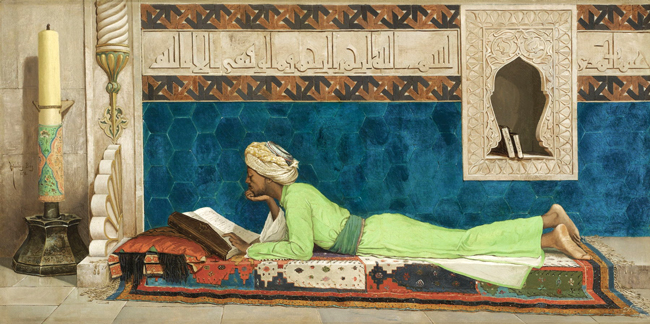
Our annual McGill Reads holiday reading list celebrates its fifth year in real style, with a thought-provoking selection of great reads as suggested by University students, staff, faculty alumni and administrators. From time-honoured classics to fresh new releases; from sci-fi and self-help, to best-sellers and biographies, our list is big, bold and beautiful. And, as always, just as fascinating as the diverse list itself are the backstories behind each selected title that give us a little glimpse into each of our contributors.
Thanks to everyone who participated and have a great, page-turning holiday!
****
“I have huge backlog of unread books at home,” writes Amanda Testani, Communications Associate, Office of the Vice-Principal (Research and Innovation), “but for the holidays I will be reading:
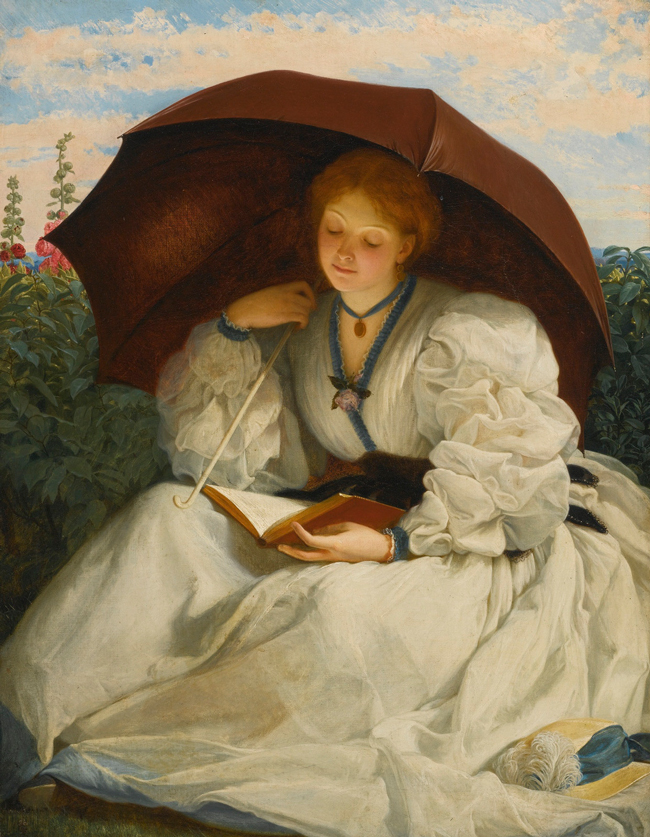
Agatha Christie’s Murder of Roger Ackroyd. “I love curling up to a good mystery novel during the holidays/winter months and there’s no one better than the Queen of Mystery, in my opinion.”
Victor Hugo’s The Hunchback of Notre-Dame. “I’m excited to read the Hunchback of Notre-Dame because I only know the story from what I’ve seen in movies and I’m looking forward to exploring it through literature (books are always better).”
Maja Lunde’s The History of Bees. “It is a unique novel that highlights the importance of protecting bees and offers a warning of what the world would be like if bees were extinct. I like that it is a fictional novel with a strong environmental message.”
Charles Dickens’ A Christmas Carol. “I have an annual tradition of reading this on Christmas eve. It never gets old.”
****
Crystal Noronha, a research assistant in the Faculty of Dentistry, plans to read Brooklyn, by Colm Toibin for her book club group.
****
“I am looking forward to a bit of reading over the holidays and am targeting two books,” writes Anja Geitmann, Dean of the Faculty of Agricultural and Environmental Sciences.
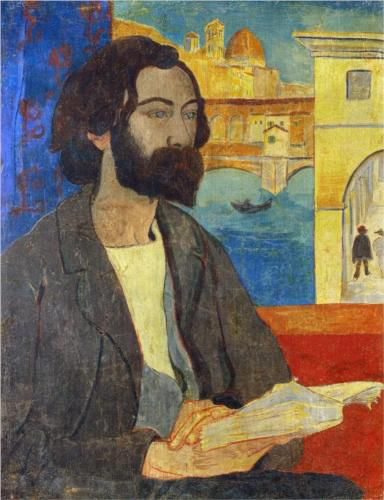
Her first pick is Simon Winchester’s The Professor and the Madman: A Tale of Murder, Insanity, and the Making of the Oxford English Dictionary. “I have always had an interest for language and words, and my long-suffering grad students know that I might go about inventing new terms for new concepts in the latest manuscript that we are writing,” writes Geitmann. “This book is right up that particular alley of mine.”
Next, she will read Andy Weir’s Artemis. “Although sci-fi is not typically the genre I drift to, I loved Weir’s The Martian – probably because of the great scientific detail (a real SCIENCE fiction),” she says. “I therefore would love to read Artemis, and all I need is someone to put it in my Christmas stocking.”
****
Even though he is a regular contributor to our reading list – and was actually the person who suggested we compile our first summer reading list – Victor Chisholm needed a personalized email before sending his list this time around.
“I missed the call for submissions, so thanks for the special invitation,” writes everybody’s favourite Undergraduate Research Officer (Faculty of Science). “As I think you know, I find it just about as much fun to stop and think about what I want to read, as it is to read our fellow community members’ reading lists.
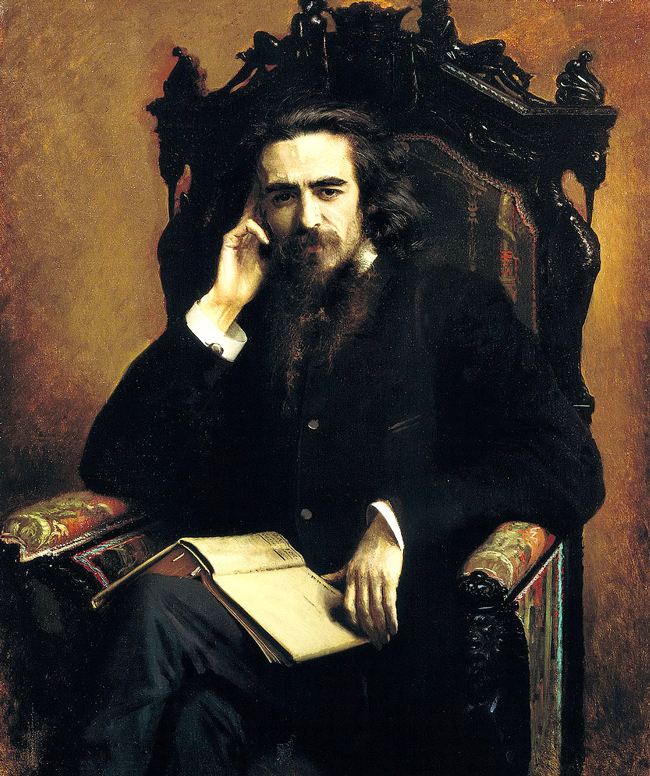
“Michel Tremblay’s La grosse femme d’à côté est enceinte was on my reading list last summer, but the truth is that I spent too much time eating ice cream last summer and not enough time reading, so it remains on the list.”
In 2013, Chisholm read Anne Applebaum’s Iron Curtain: The Crushing of Eastern Europe 1944-1956, which was that year’s Cundill Prize Winner. “Browsing the list of past Cundill Prize winners gives me many ideas: should I read about Vietnam? The Congo? The history of inequality? Perhaps I will go with internationalism and imperialism, and seek out the 2015 winner, The Guardians: The League of Nations and the Crisis of Empire, by Susan Pedersen.
Recently, Chisholm read Ru, by Kim Thúy (translated by Sheila Fischman), which he found “achingly beautiful. I do hope to read Vi and Mãn by the same wonderful author-translator pair.
“Clearly, as I plan this holiday,” says Chisholm, “I will have to be careful to leave some time for reading, not just ice cream.”
****
Lisa Knyszynska, Senior Accounts Administrator, AEC 8, Dept. of Medicine, The Glen, is looking forward to tackling Origin, by Dan Brown and Sapiens, A Brief history of Humankind, by Yuval Noah Harari.
****
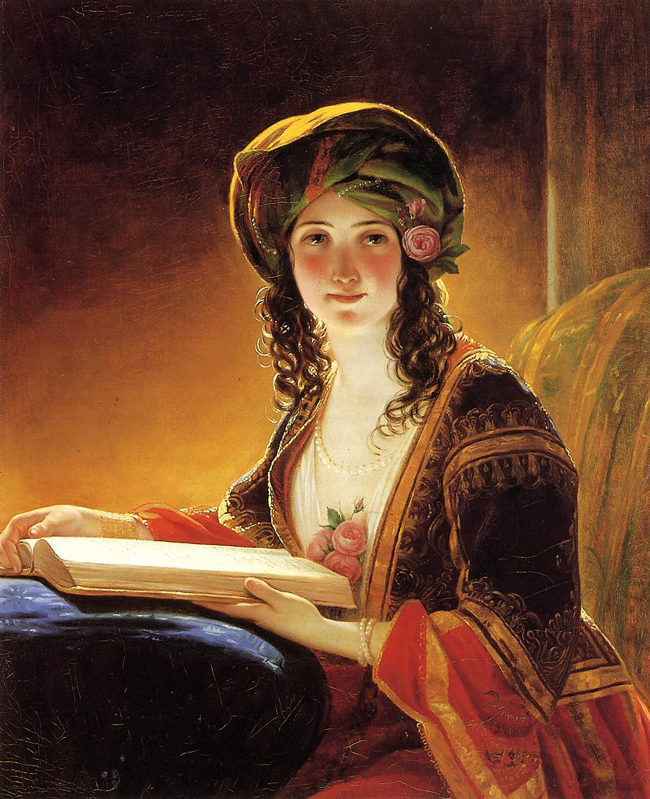
Genevieve Snider, Manager of the Materials Engineering Co-op Program and also a piano instructor at McGill’s Conservatory, plans to finish Thrive: The Third Metric to Redefining Success and Creating a Life of Well-Being, Wisdom, and Wonder, by Arianna Huffington.
Following that, Snider will crack open Goddesses Never Age: The Secret Prescription for Radiance, Vitality, and Well-Being, by Dr. Christiane Northrup.
Finally, she hopes to read Felix Mendelssohn: Out of the Depths of His Heart Heart, by Dr. Helen Martens. “As a kid, I sang in the Inter-Mennonite children’s choir founded and conducted by Dr. Martens, who in 1965 became the first music professor at the University of Waterloo,” writes Snider. “I am sure I shall learn some fascinating things about this composer that I can pass along to my piano students.”
****
On top of two books he is planning to read, Robert Leckey, Dean of the Faculty of Law, also offers a recommendation.
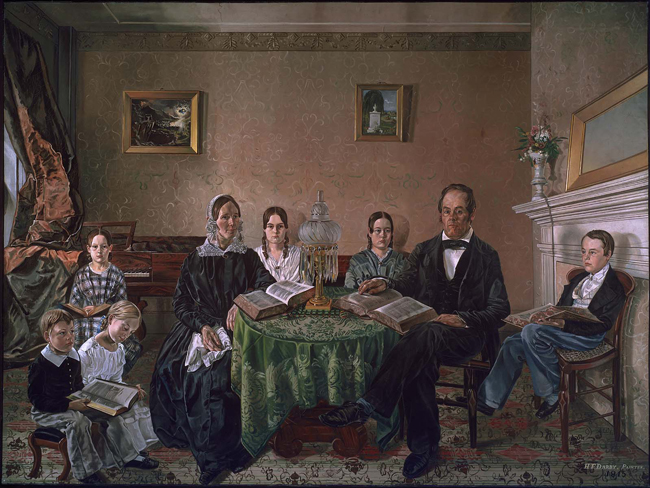
“One of the best books I read this year and a strong holiday recommendation is Julian Barnes’s latest novel, The Noise of Time,” says Leckey. “Based on the life of Soviet composer Dmitri Shostakovich, it’s beautifully written – as his work always is – and provokes reflection on the relationship between arts and politics.”
Leckey says he will turn to a pair of books over the holidays. “One is the Dictionnaire critique du sexisme linguistique, a collection edited by Suzanne Zaccour and Michaël Lessard, which I’m halfway through. The contributors fasten onto a word or expression and expose it and the network of related words to rigorous feminist analysis, prompting reflection on things we say unthinkingly,” he says. “The other is English prof and poet Michael Snediker’s latest book of poetry, The New York Editions, inspired by the work of Henry James.”
****
Bruno Savoie, graduating Law student and Editor of the Annals of Air and Space Law, is looking forward to reading Principles, by Ray Dalio. “Principles are the rules we use to make our decisions and I think that their importance is underestimated,” says Savoie. “I will also be reading Shodo: The Quiet Art of Japanese Zen Calligraphy, Learn the Wisdom of Zen Through Traditional Brush Painting, by Shozo Sato. It is interesting to be able to convey an emotion simply by the way you are writing words.”
****
“I just watched again the wonderful Hitchcock movie Vertigo and noticed in the end credits that it is based on the novel D’entre les morts, by French authors Boileau et Narcejac,” writes Claude Lalande, Assistant Director, Animal Compliance Office. “The original story was set in WWII Paris. I’m curious to see the difference with the movie set in 1950’s San Francisco. I enjoyed the same exercise a couple years ago with Daphne Du Maurier’s novelette The Birds, set in her native Cornwall, and Hitchcock’s classic movie set in California.
“I remember reading way back when The Turn of the Screw, by Henry James, after seeing the best ghost movie ever, The Innocents, based on it. On the theme of ghost stories, I also read The Haunting of Hill House, by Shirley Jackson, the basis of the movie The Haunting. I guess it’s an old habit.”
****
Nicole Perkins, an undergraduate student in biochemistry, has compiled an ambitious list for the holiday.
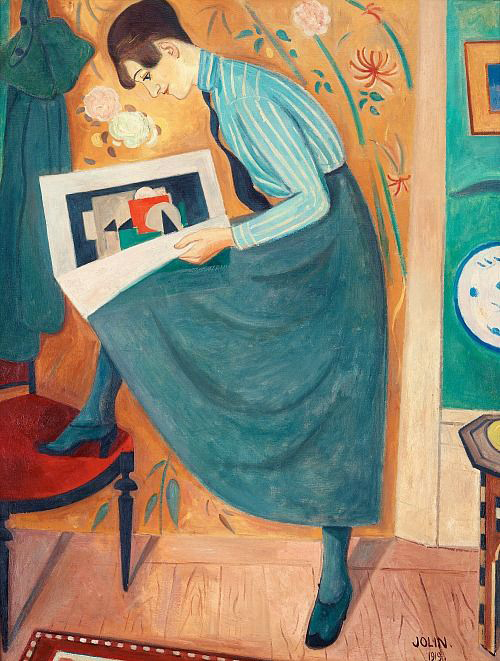
While in transit to see her family south of the border, she plans to reread Barbara Kingsolver’s Small Wonder and Durga Chew-Bose’s Too Much and Not the Mood. “Both are serious and heartfelt without being dense, and convey emotional transition for a time of physical transition across space and time,” says Perkins.
She also wants to read Susan Sontag’s Illness as Metaphor and Annie Dillard’s For the Time Being. “I’ve started both before and never finished either,” says Perkins. “Long plane rides provide the ideal opportunity for completion.”
For the holiday itself, Perkins wants to read some fiction, including Muriel Barbery’s The Elegance of the Hedgehog (“rereading an old favorite”) and Barbara Kingsolver’s The Poisonwood Bible (“for the first time, well-recommended).
On the non-fiction front Perkins will tackle Simone de Beauvoir’s All Said and Done, and The Second Sex (“have been very curious about her work, especially as women tend to be underrepresented in the classical philosophical canon”).
Perkins will also peruse a bit of poetry, including Walt Whitman’s Leaves of Grass, and Gary Snyder’s Danger on Peaks (“like the new two in transit, have started both of these but never finished; they may be saved for the trip home”)
****
“I love reading. This is an aspect of my work that I enjoy,” says Marion Van Horn, a faculty lecturer in the School of Social Work. “I have to be careful while teaching as I am a ‘binge reader’, meaning that once I start a book, I like to read it until its finished with minimal disruption. Therefore, I always look forward to the opportunity to ‘read for pleasure’ during the break and usually plan a reading list over the term.” Over the holidays, Van Horn plans to read Lincoln in the Bardo: A Novel by George Saunders, this year’s Man Booker Prize winner; and Jennifer Egon’s Manhattan Beach.
****
Not normally at a loss for words, the usually effusive David Syncox, sent a succinct list of one. “I have an oldie that I really want to read: Jack Reacher, Running Blind, by Lee Child,” says the Skills Development Manager, Teaching and Learning Services.
****
Will Straw, James McGill Professor of Urban Media Studies in the Dept. of Art History and Communications Studies, has a trio of books on tap for the holidays.
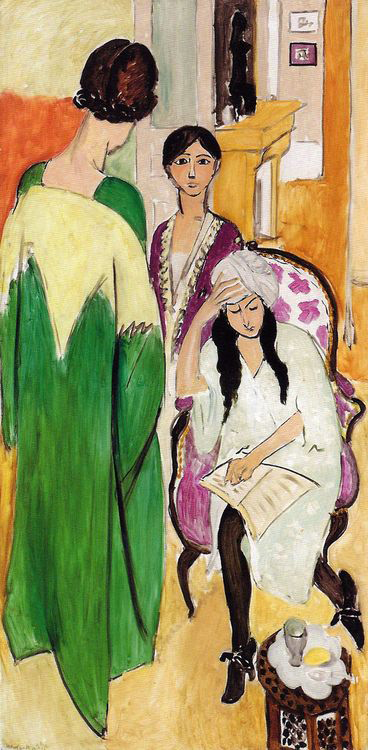
“Violette Nozière, la fleur du mal: Une histoire des années trente, by Anne-Emmanuelle Demartini is about one of the most sensational murder cases in France in the 1930s,” says Straw. “Violette Nozière, a young Parisian woman who wanted a better life, poisoned her parents. The murder was covered widely in all media, taken up by the Surrealists as a case of the oppressed fighting back, and turned into a well-received movie in 1978. This new book, by a French professor of history, sets the case it in the context of interwar French politics, and looks like a comprehensive study of the case.”
Straw will also crack open Peter Davidson’s, Last of the Light: About Twilight, which, Straw says “is about the ways in which the end of the day has been represented in art and literature. I read everything about night, and this looks like a beautiful book.”
Finally, Straw plans on reading something with a more local flavor. “Montreal: 375 Tales of Eating, Drinking, Living and Loving is by my friend Kristian Gravenor, and I’m eager to devour this,” writes Straw. “No one is better at Kristian at digging up information on Montreal’s sordid and sensational history, and having followed some of these stories on Kristian’s absolutely essential Coolopolis blog I’m eager to read the whole thing.”
****
A regular contributor to our reading lists (and this year’s summer photo gallery), Abida Subhan from the Dept of Animal Science and Dept of Natural Resource Sciences, is looking forward to reading Killers of the Flower Moon: The Osage Murders and the Birth of the FBI, by David Grann.
“It was recommended by my daughter-in-law who knows my taste and I happened upon it at an airport in India during my travels recently,” writes Subhan. “I thought it was a sign so I picked it up. It is a heavy subject so if time permits I would like to read a lighter book like a Nora Roberts that is lying on my night table or, better yet, re-read Hillbilly Elegy – A Memoir of a Family and Culture in Crisis, by J.D. Vance.”
****
Audrey St-Yves, a Master’s student in Animal Science, is another regular reading list contributor.
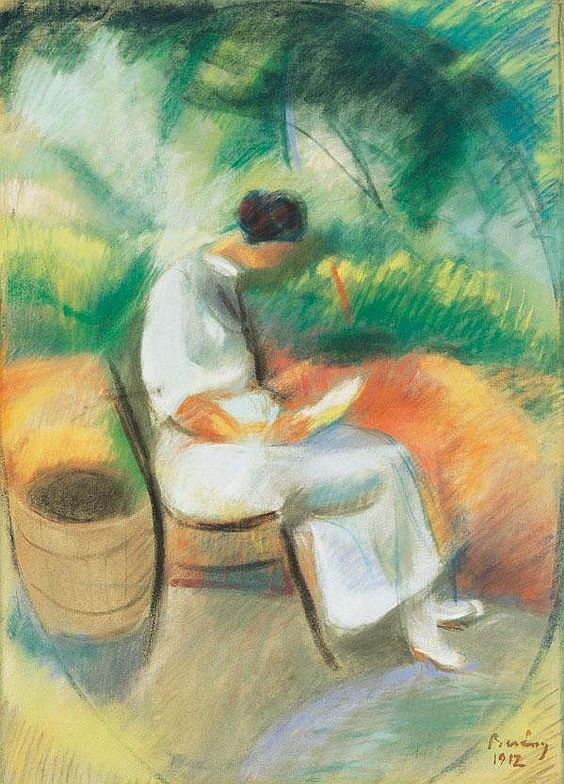
(1912)
“The first book I’ll be reading during the holidays is The Confessions of a Young Nero, by Margaret George,”says St-Yves. “I have had this book on my list for over a year now and, with time set aside for myself this Christmas, I’m finally getting around to it. I swear!”
Also on her list is the Heir of Novron, by Michael J. Sullivan, the final set of books in the Riyria Revelations series. “This series is made for blissful and comic escapism,”she says.
“Finally, on my list is Dr. Dorsey Armstrong’s The Black Plague: The World’s Most Devastating Plague – simply because, what are the holidays without just a hint of morbidness?”
****
“I really love this [McGill Reads] feature (I look forward to it each year), so I thought I should try to contribute this year,” writes Melanie Dirks, an Associate Professor in the Dept. of Psychology.
“I have resolved that this Christmas Break I will finally read War and Peace. Richard Pevear and Larissa Volokhonsky delivered an amazingly fresh translation of Anna Karenina, and their rendering of War and Peace has been occupying an intimidating swath of my bookshelf for years now,” says Dirks.
“But, if I am being honest, I will almost certainly be distracted by Reckless Daughter, David Yaffe’s new biography of Joni Mitchell, which I am hoping will provide some insight into Mitchell’s uncanny ability to write deeply personal lyrics that resonate so broadly. Perhaps I will compromise and read War and Peace while listening to Blue.”
****
Dilson Rassier, Dean of the Faculty of Education and a regular McGill Reads contributor, was out of town when the call for submissions went out. Luckily, he made it back in time to sneak the following picks in under the deadline.
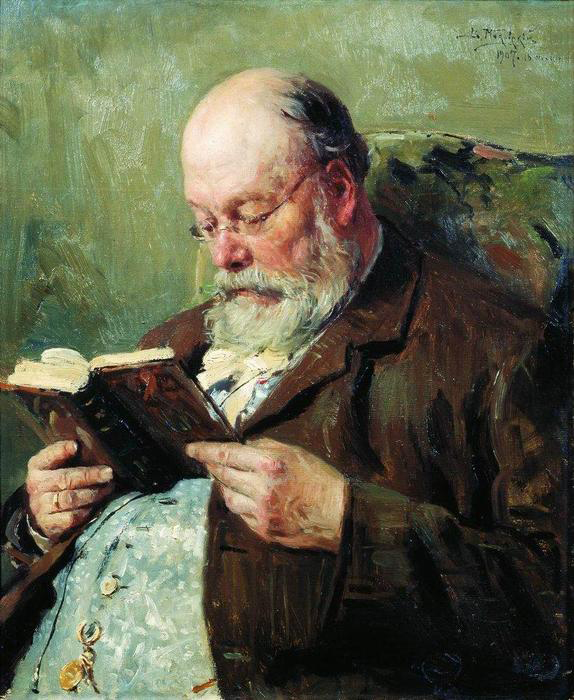
On the fiction side, Rassier will read these books:
The Prague Cemetery, by Umberto Eco. “Umberto Eco’s sixth novel, with history, literacy, and politics with first-class writing,” says Rassier.
Como la sombra que se va, by Antonio Muñoz Molina. “One of the latest books of one of my favourite authors, who also wrote the classic La noche de los tiempos (In the Night of Time).
Legacy of Spies, by John le Carre. “The latest book of John le Carre, just in time for those who enjoy a spy novel during a break,” says Rassier.
Rassier’s sole non-fiction pick is All That Is Solid Melts into Air: The Experience of Modernity, by Marshall Berman. “A book about political and social revolutions of the nineteenth century, using a mix of ideas coming from varied sources such as Goethe, Dostoevsky, Marx, among others,” says Rassier. “The book explores how such different ideas brought us the concept of modernity to replace old concepts and theories.”
****
Aziz Choudry, Canada Research Chair in Social Movement Learning and Knowledge Production in the Dept. of Integrated Studies in Education has a trio of titles on his holiday list.
Indigenous Peoples as Subjects of International Law, edited by Irene Watson. “I’ve already used Tamara Starblanket’s powerful chapter on genocide in a course this term and look forward to reading the rest of this new international, interdisciplinary collection which includes important Indigenous scholars and thinkers like Sharon Venne, Steven Newcomb, and Watson herself,” says Choudry.
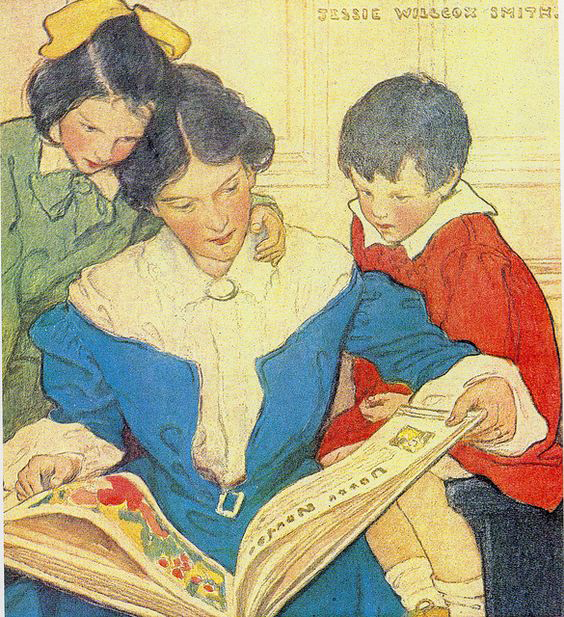
“I’m re-reading Nicholas Hildyard’s excellent Licensed Larceny: Infrastructure, Financial Extraction of the Global South, a critical analysis of financialization, ‘development’, and popular resistance, packed into around 100 pages,” he writes. “It’s a great book to use for courses on international development, political economy, and social movements, but also accessible for broader audiences.”
Also on Choudry’s list is Margaret Andrews’ Doing Nothing is Not an Option: The Radical Lives of Eric and Jessica Huntley, “which I bought at the Walter Rodney conference held at the University of Westminster in 2016. It’s a biography of two Black anti-imperialist and anti-racist activists – and publishers – who founded the Bogle L’Overture publishing house in London in 1968 – and strongly resonates with the social movement archival and education work that I’m engaged in within and outside of academia.”
****
As a Trade Buyer at Le James – McGill University Bookstore, Kimberley Stephenson has been tempted by her share of great books. Enough to know her limitations. “I never seem to get around to reading that fourth or fifth book, so I am going to restrict my choices this year,” she writes. “I am going to start with Montreal Noir, edited by John McFetridge and Jacques Fillipi. It’s a collection of dark short stories by Montreal writers, including McGill alums Peter Kirby and Catherine McKenzie.”
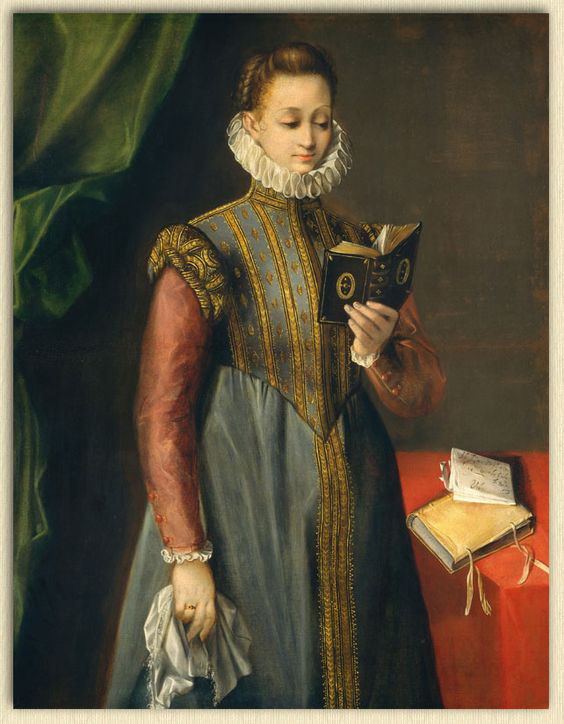
Then, she will move on to on to the 1,000+ page Grant, by Ron Chernow. “This will be the second massive tome about Ulysses S. Grant I have read,” she says. “And, if I have time, Sticky Fingers: The Life and Times of Jann Wenner and Rolling Stone Magazine.”
****
“It’s been just over a year since I graduated with my Master’s degree in Critical Disability Studies – what used to be required reading for my classes have now become what I like to read for pleasure,” says Rachel Desjourdy, Access Advisor, Office for Students with Disabilities. “I have cracked open my brand new copy of Academic Ableism, by Jay Timothy Dolmage and am looking forward to reading through it. You know you’re in the right career when what you do for work, and what you do for pleasure is rather seamless.”
****
And then there is Daniel McCabe, Editor-Par-Excellence of the University’s flagship alumni magazine, The McGill News, and campus eminence grise.
“Having recently heard Zadie Smith speak in Montreal (and a big shout-out to the Drawn & Quarterly Bookstore for bringing people like Zadie Smith to town), I’m really looking forward to reading her most recent book, Swing Time,” writes McCabe. “Smith has a deft touch for dealing with complex issues in a thoroughly absorbing and entertaining way. It’s like happily devouring a Coffee Crisp only to realize it was kale all along.”
McCabe has also lined up My Favorite Thing Is Monsters, by Emil Ferris, which he calls “a one-of-a-kind graphic novel by a singular talent who had to teach herself how to draw again after a horrific experience with West Nile Virus. Inspired, in part, by old monster movies and horror comics, it’s a murder mystery and a coming-of-age tale that looks at who the real monsters are in this world.”
****
Kendra Gray, Internships Officer in the Faculty of Agricultural and Environmental Sciences, is intent on “finishing books” during the break.
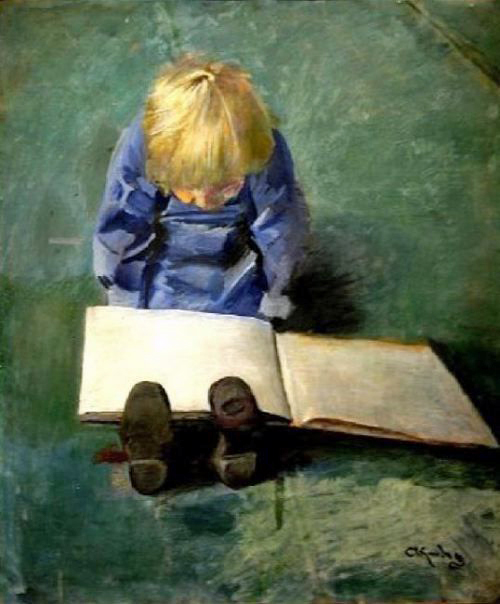
Gray will continue reading Masha Gessen’s The Future is History: How Totalitarianism Reclaimed Russia, “which I am enjoying immensely. The book follows four Russians, and through the portrayal of their experiences, paints a picture of recent events in Russia,” she writes. “I have a long-standing interest in Russia, and have really enjoyed how this book pulls a complicated country’s (not so distant) historical events together in a way that ‘clicks.’”
Also on deck is Karen Armstrong’s Fields of Blood: Religion and the History of Violence. “On the occasions I have heard Karen Armstrong speak, I’ve found her to be brilliant, so I wanted to read her thoughts on the connection between religious and violence – and rethink whether the assumed connection is in fact accurate (especially given how these assumptions turn into biases and policy decisions),” says Gray.
Finally, she hopes to polish off Fall on Your Knees, by Ann-Marie MacDonald. “Who doesn’t like historical fiction that chronicles five generations of a family?” asks Gray.
“If I start anything new, it will be Uncertain Weights and Measures, by Montreal’s Jocelyn Parr, or Ivan Coyote’s Tomboy Survival Guide, both of whom I heard speak this fall,” she says. “I look forward to hearing Parr’s fictional account of a real (and very odd) museum. And, given that Ivan Coyote’s show was one of the best things I’ve seen all year, I’m sure that their book will be amazing as well.”
****
“This winter, I’ll be reading books to prepare for a new course I’ll be teaching in the coming term,” writes Raphaël Fischler, Associate Professor at the School of Urban Planning. “If you think that the Reporter readers might be interested in classics in urban history, I can share a few titles, with quick comments.”
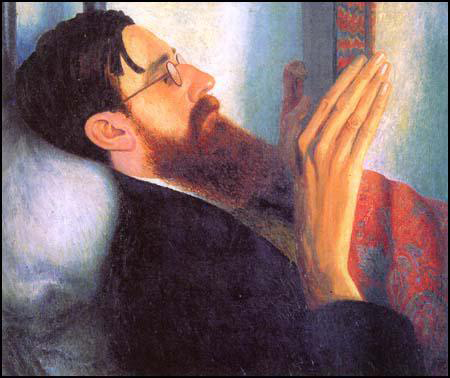
“Joel Kotkin’s The City: A Global History provides a minimalist overview of a huge topic. By contrast, Peter Hall’s Cities in Civilization, at 1,150 pages, is a monumental analysis of the contribution of cities to culture, innovation and social order over the past 2,500 years,” says Fischler. “Asa Briggs’ classic Victorian Cities tells the story of British industrial cities and the tensions they generated. Donald J. Olson’s The City as a Work of Art is a richly illustrated review of the ways in which the citizens of London, Paris and Vienna responded to some of these tensions in designing their cities in the 19th century.”
****
Isabelle Bajeux-Besnainou, Dean of the Desautels Faculty of Management, has something old and something new lined up for her holiday reads.
She will read Sapiens: A Brief History of Humankind, by Yuval Noah Harari. “This book was recommended to me by Seymour Schulich (MBA’65),” she says. “I enjoy reading about history in general and look forward to better understanding our origins as humans.”
Next up, Bajeux-Besnainou will read Les Misérables, by Victor Hugo “A classic French novel,” she writes. “I am excited to see the musical with my daughter when it arrives at Place des Arts in February.”
****
“Short but interesting” are the watchwords for Sacha Young’s holiday reading list.
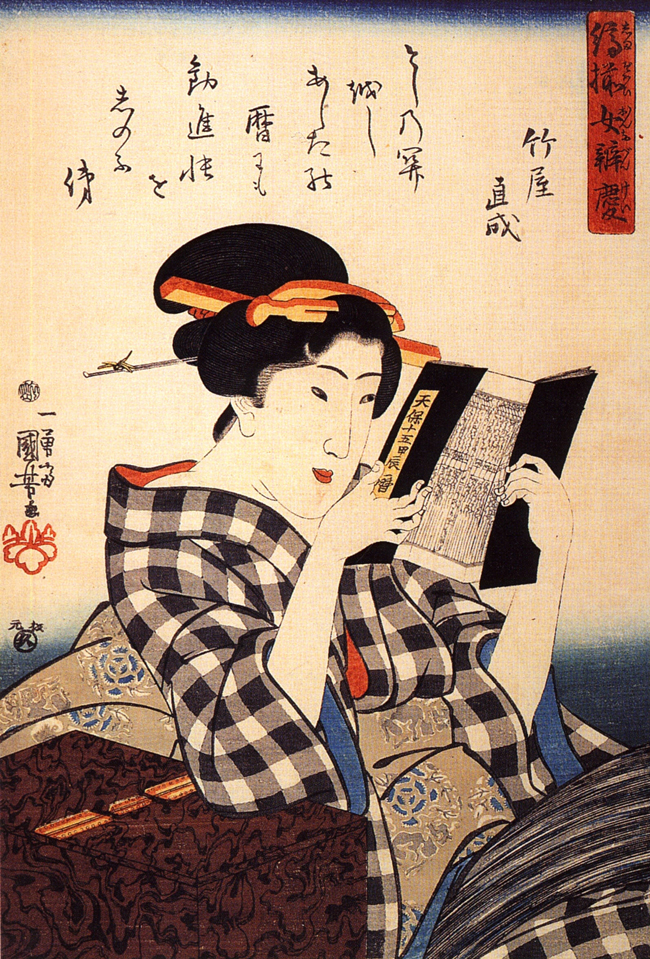
“I have begun with a bit of sci-fi: Stanislav Lem’s His Master’s Voice,” says the Ethics Review Administrator for the McGill Institutional Review Board (Faculty of Medicine). “From the publisher: ‘Twenty-five hundred scientists have been herded into an isolated site in the Nevada desert. A neutrino message of extraterrestrial origin has been received and the scientists, under the surveillance of the Pentagon, labor on His Master’s Voice, the secret program set up to decipher the transmission.’ And from the reviewer provided in the hyperlink: ‘The book touches on a great many scientific, philosophical, and political issues, and really says much more about our modern world than it does about extraterrestrial contact.’”
“My interest in this book is to learn more about Lem’s ethical and philosophical position on technology and humanity (I should note that this reading will be paired with Lem’s Summa Technologiae, but delivery of this book may be delayed because of the holiday),” says Young.
“The second book on my list is Charlotte Salomon’s ‘Life? Or Theatre? From the publisher: ‘This is the cathartic masterpiece of Charlotte Salomon. Entrusted to a friend before her deportation to Auschwitz, her gouache series Life? or Theater? live on as an artistic feat beyond category or comparison. Published here with the 450 most important pieces, including film-like sequences and musical suggestions, this fictional autobiography is a shattering document of self-expression born from family tragedy.’”
“The text appears, to me, as a fascinating work that combines art and narrative during a particularly volatile period in history,” says Young.
****
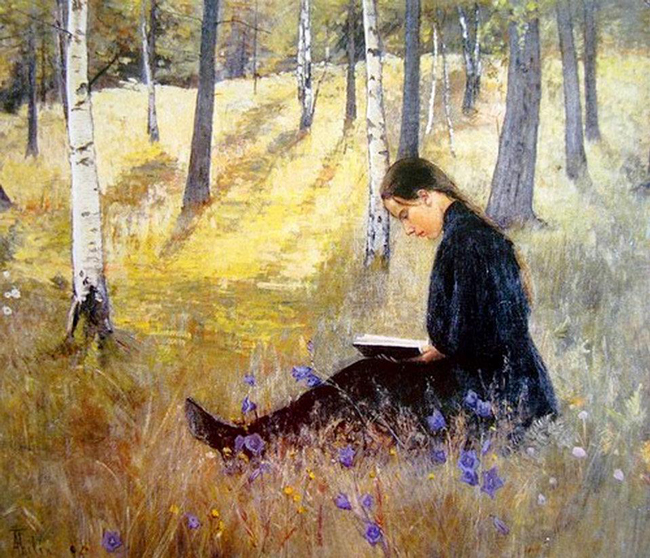
Like a sheriff in an old Western, Tara Shaughnessy, Director, Communications Services, is a woman of few words, as seen by her submission to our list, who doesn’t mind cracking a few eggs to keep the peace.
“I love John Updike so Self Consciousness – Memoirs is queued up, as is Icelandic mystery Oblivion, by Arnaldur Indridason, and The Story of a New Name, book two of the Neapolitan novels, by Elana Ferrante
“My professional coaches virtual book club picks include Being Mortal: Medicine and What Matters in the End, Atul Gawande (McGill hon doc!), and The Body Keeps the Score: Brain, Mind, and Body in the Healing of Trauma, by Bessel van der Kolk M.D.”
****
U3 Anatomy and Cell Biology student Sean Goldfarb has a detailed list of books he wants to read and some suggestions for others.
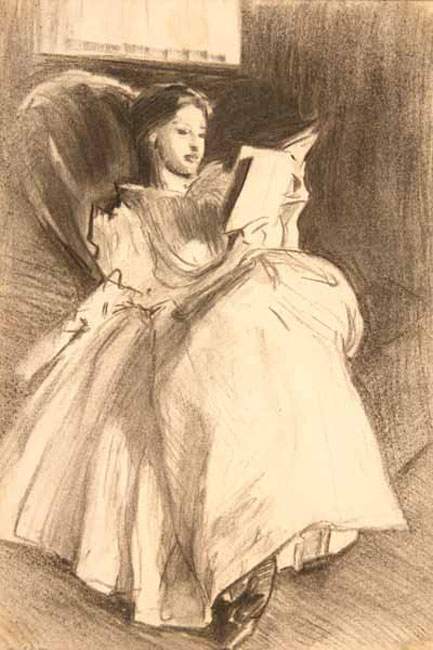
“Over the holidays, I plan to read Make It Stick: The Science of Successful Learning, by Peter C. Brown et al. “It is a book about how we study best and learn best; something that I hope will show me if and how I am studying wrong and how to improve, since the book states that most students study wrong,” says Goldfarb.
“I recently finished Dragonfly in Amber, the second book from the Outlander series by Diana Gabaldon. “This is a perfect series to get lost in after a stressful half year,” says Goldfarb. “It (and the series) is historical fiction that is very well researched.”
Goldfarb suggests people try The Knife Man; Blood, Body Snatching and the Birth of Modern Surgery, by Wendy Moore, a book he read earlier this year. “It is a biography about John Hunter, a surgeon in the latter half of the 1700s,” says Goldfarb. “He was the most famous of those who first introduced the scientific method into the art and practice of surgery.
“As a bonus, I suggest reading Lost Horizon, by James Hilton. Written in 1933, it’s one of the great classic novels. It is about the famous Shangri-La and is a short thought-provoking read that is surprisingly still relevant, even today.”
Goldfarb’s mother, Janice Goldfarb, who graduated as a McGill undergraduate in 1982 in physiology and again in 1989 in graduate neurophysiology, couldn’t resist suggesting the book she is reading right now. Ido in Autismland, “is a touching book by Ido Kedar who is a non-speaking, severely autistic young adult. Ido, after many years of being unable to communicate, was finally believed to be intelligent and then taught to communicate by spelling independently. He now explains what his life (‘a silent prison’) is and was like. He, and others like him, insist they are not alone and want other people like them to learn to communicate in the same way.”
****
“The holidays are time for me to read and not feel guilty,” writes C. Colleen Cook, Trenholme Dean of Libraries. “My interests are really pretty eclectic. I will read almost anything I can put my hands on. But this break I will first read the New York Times and the Atlantic Monthly online versions daily, with a spattering of the Guardian, and good solid CNN. I am – as many of us are at this point in time – a news junkie.
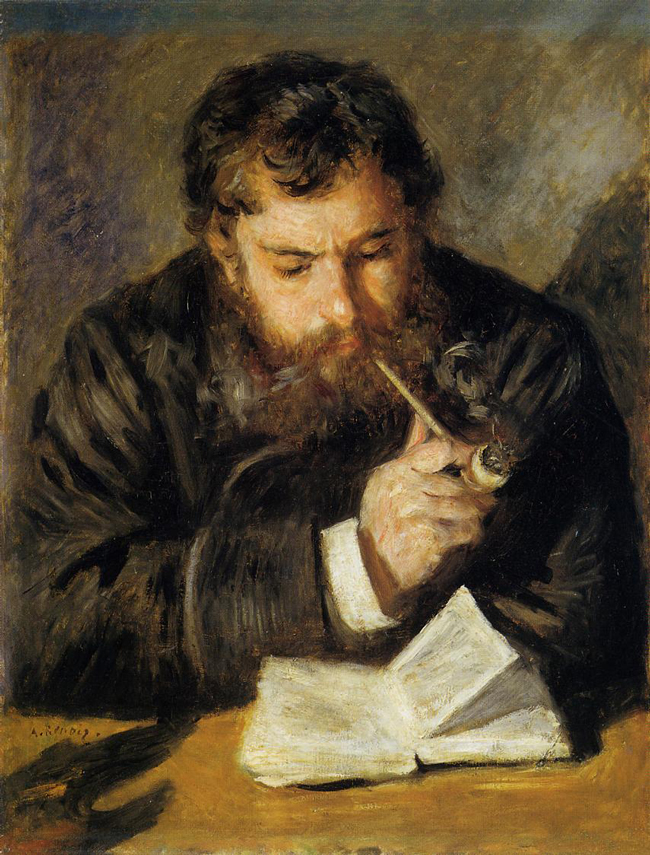
“But reading books has been a special part of my life forever, as it was for nearly all of my family members. I simply can’t fall asleep without reading and there is always a stray book or my ipad with Kindle somewhere in my bed (along with an occasional feline or two),” she continues.
Cook will begin with Blue Lake, by Janet Savage Blachford, a book set in the houses of the lakes around Montreal. “Janet is a personal friend of mine and a very special friend of the McGill Library’s, and a wonderful wordsmith,” says Cook. “I must admit that I have already begun the book and have been swept up into the atmosphere of the lake house in winter. It resonates with me as a Texan, now Quebec resident, who struggles to connect the cultural dots in my new home.”
Cook also plans to read N.K. Jemisin’s newest novel, Mass Effect: Initiation. “Jemisin is a Hugo Award-winning writer – according to the Guardian she is a ‘fantasy author upending the ‘racist’ and sexist status quo of the genre.’ She is an African American woman who creates intricate worlds with a superb mastery of the English language,” says Cook. “But her books are not merely escapism as she explores the depths of the human psyche – her most recent trilogy deals with the complexities of the mother-daughter bond. Hers are certainly not trivial books. The one I will read this break will be very fun, weaving the story of the prequel to the hit video game BioWorld.”
Finally, Cook will indulge her love of history in the pages of the Cundill Prize winner for 2017, Daniel Beers’ The House of the Dead.
“No professional reading for me, you’ll note!” rejoices Cook.
****
Anne Lagacé Dowson, of Internal Communications fame, offered a succinct, and thought-provoking list that includes Scarborough, by Catherine Hernandez; Don’t Tell Me What to Do, by Dina Del Bucchia; Little Sister, by Barbara Gowdy; The Lonely Hearts Hotel, by Heather O’Neill; We All love The Beautiful Girls, by Joanne Proulx; and Everything is Awful and You’re a Terrible Person, by Daniel Zomparelli
****
Alex Lachapelle, one of McGill’s two newest Rhodes Scholars and currently pursuing his Medical Doctorate and Master of Surgery, jumped at the invitation to submit his holiday reading list.
“I’m a big fan of non-fiction books – especially history, geopolitics, technology, medicine and entrepreneurship,” he writes. Lachapelle has set his sights on a pair of books.
First up is Benjamin Franklin – An American Life, by Walter Isaacson. “I just finished reading Franklin’s autobiography, and am absolutely fascinated by the man,” says Lachapelle. “He founded an Ivy League university, a hospital, the US postal system, worked as an ambassador and diplomat, and invented the lightening rod, bifocals and Franklin stove. And when he was done, decided to become a Founding Father and co-authored the American Declaration of Independence. Isaacson is a great biographer (Steve Jobs, Albert Einstein, Leonardo Da Vinci), and I’m excited to read his take on Ben Franklin.”
Next, Lachapelle will tackle Prisoners of Geography – Ten Maps That Tell You Everything You Need to Know About Global Politics, by Tim Marshall. “This book comes highly recommended, and tries explaining current international events through the lense of geography.
“They’re actually both on my nightside table right now – just waiting to wrap up my clinical rotations to take them on!”
****
Kira Smith, Project Assistant at Teaching and Learning Services, Night Auditor at New Residence Hall (Student Housing and Hospitality Services) and McGill Alumna (BA’17, English Literature and Philosophy) plans on re-reading The Alchemist, by Paulo Coelho, which she first read in 2011. “Each time I read it, my interpretation is different, serving as a kind of metric for personal change,” she writes. “I’m also hoping to dig into Io Non Ho Paura, by Niccolo Ammaniti and pick up something new from The Word on Rue Milton. I’ve never left The Word without purchasing a book or two (or five!).”
****
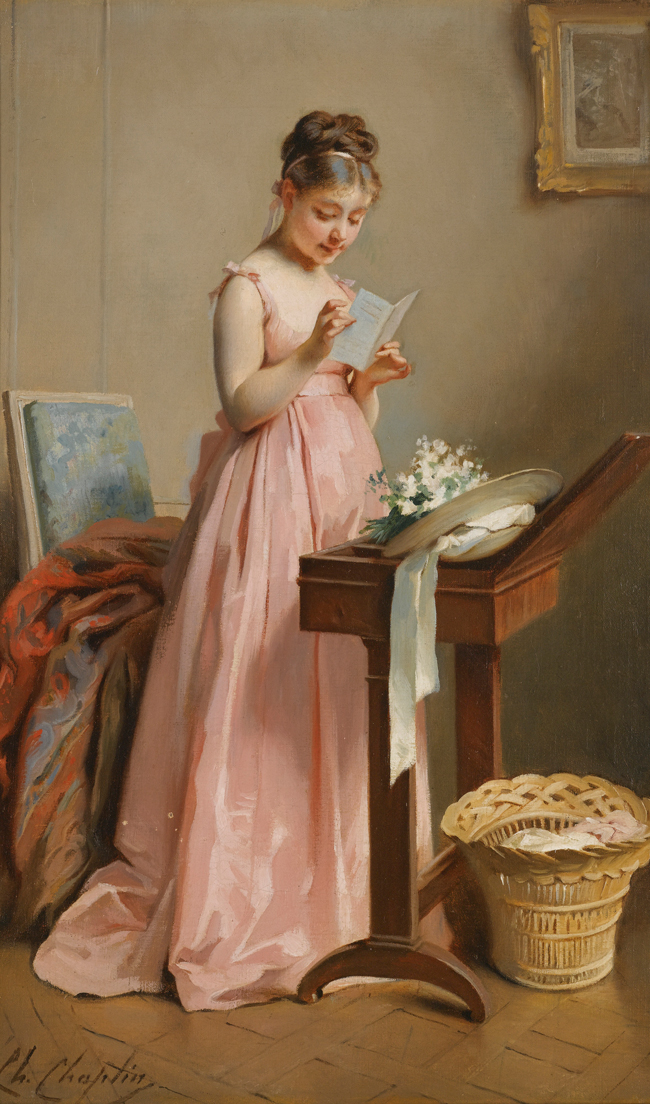
Isabelle Lalonde, Administrative Coordinator, Scholarships and Student Aid, will take on two books by Yuval Noah Harari; Sapiens: A Brief History of Humankind and Homo Deus: A Brief History of Tomorrow.
“It all started at my cousin’s birthday last October when our aunt Isabelle, you know the one that always has the best/clever gifts, gave him those two books,” says Lalonde. “The following day, my husband and I were leaving on vacation for France. Once in Europe, I noticed that all the book stores were piled up with hundreds of these titles and selling like crazy. I wanted to buy them for my husband.
“I didn’t splurge because 50 euros for each book was a bit much for my budget and being in France, the books were only available in French. I’m francophone but, when possible, I prefer to read books in the language in which they are originally written and published,” she continues. “In this case, it’s Hebrew, which I don’t read, however the books have been translated in English by the author.
“A few weeks ago, they were 20 dollars each at Indigo. So, I decided that my husband was getting them for Christmas,” she says. “But as it always goes, he has four or five books going at the same time, so I’ll get to read them first.”
****
When he isn’t running the Faculty of Engineering or rappelling down the side of skyscrapers like a superhero, Jim Nicell likes to read. “As usual, I am more ambitious with my reading list than is realistic, but I am betting that I will get through two out of the following three books,” writes the Dean of the Faculty of Engineering and someone who has submitted to almost every reading list we’ve compiled.
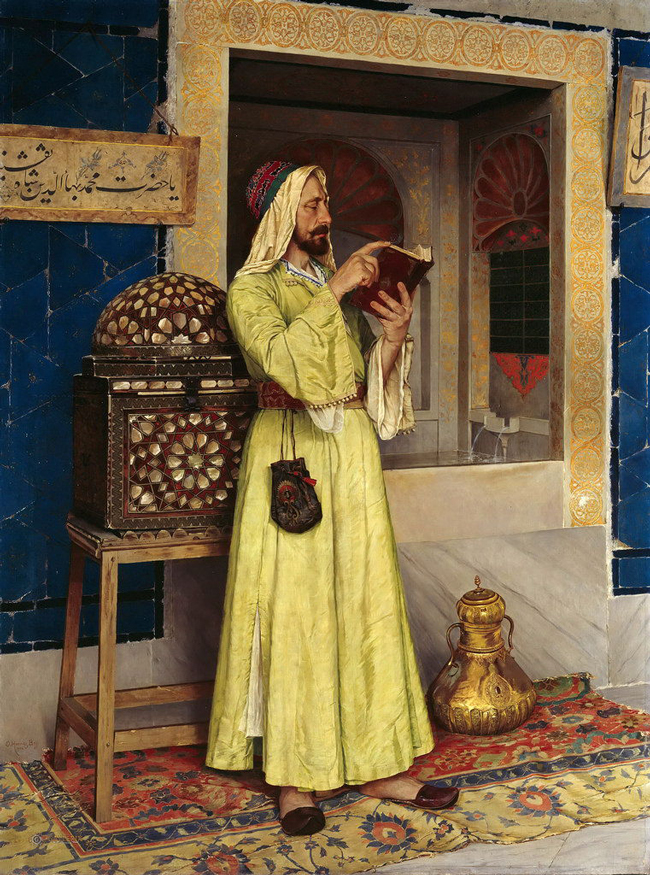
“On a trip in September, I came across the book The House of Government: A Saga of the Russian Revolution, by Yuri Slezkine, about the personal and public lives of Bolsheviks leaders as they were converted to communism and gradually lost faith in the system that they had helped build.”
Nicell says his bedside table is also stocked with the recent biography of Henry Kissinger by Niall Ferguson called Kissinger: 1923-1968: The Idealist. “Kissinger has always fascinated me, as has the whole period of Nixon and Watergate,” says Nicell. “My interests in this period have particularly grown lately because of recent political events in the USA.”
Lastly, Nicell has picked up Walter Isaacson’s Leonardo da Vinci. “As is Isaacson’s tendency, the book is not only a biography of the subject but connects the person to their particularly innovative accomplishments,” says Nicell. “This book is rich with drawings, painting and photographs throughout that help you better understand what made Leonardo such a genius.
“I’m betting that I won’t be able to wait until the holiday to dive into the Leonardo book. I have a tendency to be most excited about the book I most recently acquired (it sits on top of the pile, so I see it every day in passing), says Nicell, adding that “the only thing that will get in the way of my reading may be Netflix binging over the break!”
Fittingly, Nicell ends on a book-related note. “One of the things that I am most looking forward to over the holidays is diving into the Harry Potter books with my 12-year-old son, Shea,” says Nicell. “I purposely didn’t read these books until he was old enough to enjoy them with me. I imagine our bedtime reading will be occupied by these books for a very long time.”
****
Like Nicell, Chris Buddle, Dean of Students, regularly submits ambitious, eclectic titles to our lists. This year is no exception.
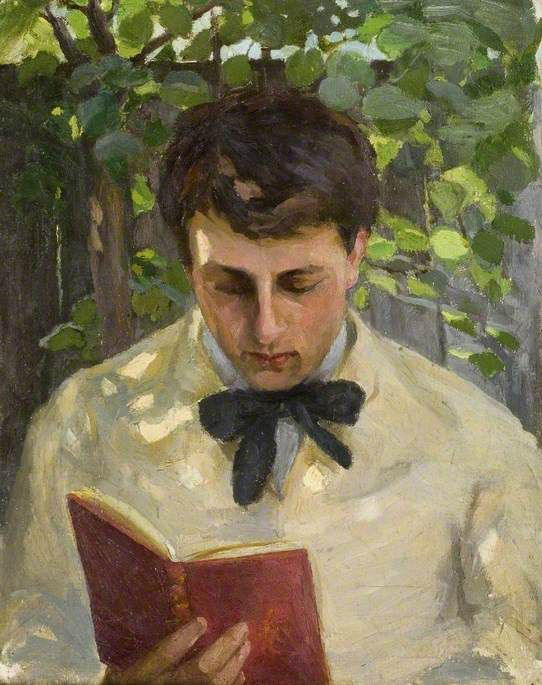
Buddle hopes to take on the following four books over the break.
Commonwealth, by Ann Patchett. “I have really enjoyed some of Ann Patchett’s older books, including State of Wonder,” says Buddle. “I read a review of Commonwealth the other day, and it’s now top of my list. It looks to be a magnificent sweeping tale of family drama, with all its ups and downs.”
Royal City – Volume 1, by Jeff Lemire: “I’m a big fan of graphic novels, and I am especially keen on work by Canadian Jeff Lemire (you may know of him because of the Secret Path graphic novel which accompanied Gord Downie’s album about Chanie Wenjack),” says Buddle. I’ve read most of Lemire’s material, except for Royal City, so I hope to dig into the first volume of that series. It too looks like it’s a haunting tale about a family.”
Barkskins, by Annie Proulx. “This tome has received mixed reviews, but I’m still intrigued,” says Buddle. “It is sold as a captivating tale spanning 300+ years of North America, with rich characters woven into the recent history of this continent, including key connections to our changing climate.”
John Cardinal Crime Series, by Giles Blunt. “My previous selections all seem rather heavy, and I must be honest that I’m a big fan of a good page-turning crime series,” says Buddle. “In fact, that’s what a tend to read with higher frequency during the academic year (my absolute favourites being anything by Fred Vargas, and I really enjoy Ian Rankin’s (never-ending) Rebus series). I know that ‘Cardinal’ was a hit TV series recently, and although I haven’t watched it, I would like to read the John Cardinal series. From what I understand, they are all very Canadian, and set in northern Ontario. They ought to be ‘fun’!”
****
Phoebe Warren, U4 Arts, Political Science & History says she plans on reading Randy Shilts’ And the Band Played On: Politics, People, and the AIDS Epidemic and Samantha Power’s, “A Problem from Hell”: America and the Age of Genocide.
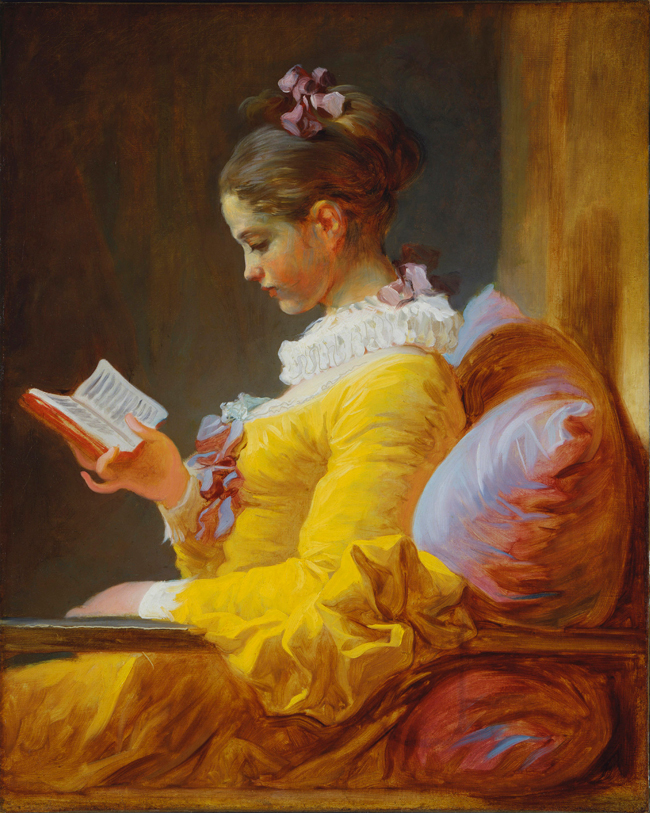
“I’ll be reading these simply because they are books that I came across during the term and desperately wanted to read but didn’t have time to do so!” writes Warren.
****
David Eidelman, Dean of the Faculty of Medicine and Vice-Principal (Health Affairs) offers four suggestions for people looking for a good read.
Red Notice, by Bill Browder. “One man’s fight with Russian oligarchs and Vladimir Putin himself,” says Eidelman. “Reads like a spy novel but entirely based on real events. This story is the basis for the Magnitsky Act, which was passed by Congress and more recently, the Parliament of Canada.”
Silk Roads, by Peter Frankopan. “The history of the world starting from the premise that Asia, particularly central Asia, has driven history. And still does.”
Hidden Figures, by Margot Lee Shetterly. “The little-known story of black, female mathematicians at what became NASA,” says Eidelman. “It was a good movie but the book is better, giving a much richer understanding of how remarkable this was given the time and place.”
Do Not Say We Have Nothing, by Madeleine Thien. “On last year’s Man Booker Prize shortlist and deservedly so. Beautiful rendering of the human impact of the brutal politics of China’s Cultural Revolution.”
****
Nathael Javorcik is a U1 student in the Faculty of Science who hopes to get to three books over the holidays.
He’ll begin with The Hero and the Crown, by Robin McKinley. “A fantasy novel with a female protagonist, it is renowned for being one of the forefathers of heroine-led fantasy epics,” says Javorcik. “Considering how prevalent the male protagonist role is, I want to see the differences between them and hope to learn a thing or two about writing strong female lead characters.”
Javorcik will also read Kings of the Wyld, by Nicholas Eames, a nominee for the best debut and best fantasy novel of 2017. “It also appears to have an assortment of lovable characters and a formidable setting,” he says.
Moving from fiction to non-fiction, Javorcik wants to read A Crack in Creation, by Jennifer A. Doudna and Samuel H. Strenber, to get “the authors’ attempt at explaining the various implications of the new genome editing tool on our society.”
****
No McGill Reads list is complete without the much-anticipated input of Bud Martin, a writer who has evolved impressively from his early days on campus when he was oft referred to as ‘the poor man’s Daniel McCabe,’ to one of the University’s most influential scribes.
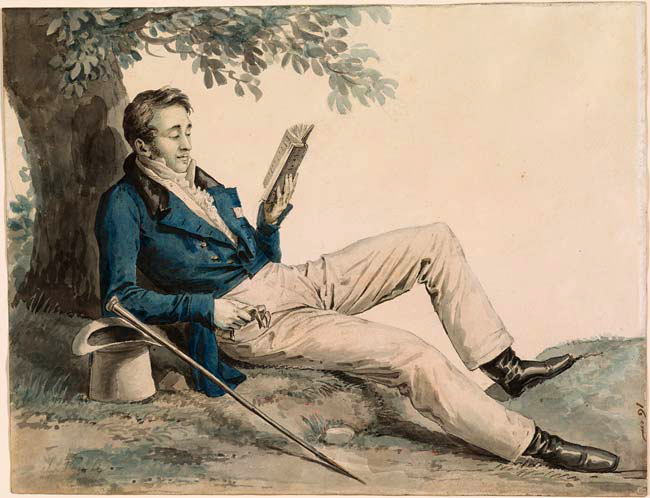
“I’m reading locally,” says the much-ballyhooed Bud. “Montreal writer and filmmaker William Weintraub (BA47) died last month at age 91. When he published his final novel, Crazy About Lili, in 2005, I suggested to my editor that the McGill Reporter would do well to interview the esteemed alum. She kindly greenlit my obvious ruse to Have Coffee With A Legend.
“Weintraub and his wife, Magda, generously welcomed me into their Westmount home for an afternoon of breeze-shooting,” he continues. “We talked about the book, campus life, writing, and the real estate perks of a volatile 1970s political climate. He lent me his VHS copy of the film adaptation of Why Rock the Boat, his 1961 roman à clef about his years in the Gazette newsroom. (‘You have to promise me you’ll bring it back!’) (I did, and I did.) I’ve yet to find a used copy of the out-of-print novel, so it’s the McGill library to the rescue this holiday.
“Leonard Cohen (BA55, DLitt92) has been widely eulogized, and rightly so, but I find some of the tributes too kitschy for a sage, or too reverential for a wag,” continues our man Bud. “So I’ll revisit the lewd paperback edition of Beautiful Losers that I bought when I was 19 (“Four degenerate lives lost in sexual and spiritual chaos”!) and reclaim the self-styled “lazy bastard living in a suit” for myself. To each their own Cohen.”
Finally, everybody’s favourite ink-stained wretch plans to end the year with Gabrielle Roy’s The Tin Flute, her novel about family life in St-Henri during World War II. “There’s a Roy-sized hole in my reading history and it’s well past time to fill it – and to kick off my New Year’s resolution to broaden my reading (i.e., way fewer white dudes),” says Bud. “No offense, Bill and Lenny.”

